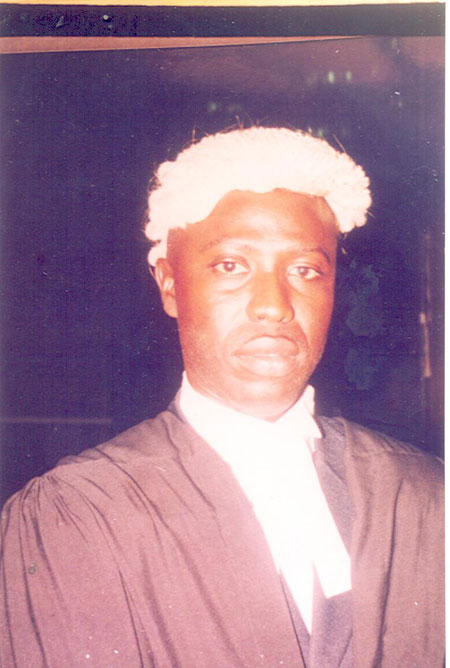
Where a person is deemed as a suspect or accuses to have committed any offence, the law always presumes him/her innocent until otherwise proven guilty. This right is recognised under national constitutions and international human rights instruments.
This principle is one of the cornerstones of any criminal justice system. The right to be considered innocent until proven guilty is provided under Article 11 of the Universal Declaration of Human Rights and moreover under Section 24(3) of the 1997 Constitution.
When an individual is deemed to be a suspect or an accused, certain rights are attributed to him, such as the right to fair trial. This is a very essential right for a person to secure justice.
In case an aggrieved person is denied the right to be heard by an unbiased court, there is very likelihood that the person would be denied of justice. For example, Article 14 of the international covenant on civil and political rights states that everyone shall be entitled to a fair and public hearing by a competent, independent and impartial tribunal as established by the law. In reality, the aim of such provision is that criminal charges are heard by courts, which are set up independently of a particular case, rather than by courts established, specifically for the offence involved.
In order to be independent, a court or tribunal must have been established to perform adjudicative function. Independence also presupposes that the judiciary is independent of the executive and legislative branch and that judges are impartial and competent. The function of the court should comply with the normal standards of justice.
In any administration of justice, impartiality and independence are central ingredients.
Another fundamental right attributed to a suspect or an accused is the right to have adequate time and facilities for the preparation of his defence, and to communicate with a counsel (Lawyer) of his/her choice. The issue of adequate time depends on the circumstances of each case.
Factors to be taken into account are the complexity of the case, the accused's access to evidence (documents) and other evidences, which the accused requires to prepare his case, as well as with counsel. When an accused does not want to defend himself in person or is indigent, he/she should be able to have recourse to a lawyer provided by the state.
The law also observed that communication between accused and his counsel should be given full respect for the purpose of confidentiality.
Moreover, Lawyers should be able to counsel or represent their clients in accordance with the established professional standards and judgement without any restriction, influence, pressures or undue interference from any quarter.
This right to a counsel applies to all stages of criminal proceedings and it’s relevant in the case of pre-trial detention. Therefore, it is essential that all detainees must be provided with opportunities to be visited by and communicate with a lawyer in full confidentiality throughout the whole proceedings. In particular, the accused or his/her counsel shall be entitled to examine or cross-examine witness against the accused.
Equally, as prosecution shares the same entitlement to cross-examine the accused or his/her witnesses, ample time should be given for the accused to prepare his defence.
Another key and very fundamental right of an accused is the right to be visited and communicate with his/her family members.
Since the family is entitled to know why the accused is detained, such regular visits may allow the family the opportunity to know the actual state of the accused’s mental and physical condition.
Another crucial element in the accused’s right is that the publicity of hearing is an important safeguard in the interest of the individual and of society at large. Although the court may upheld object on national security issue or exceptional circumstance, a hearing must be open to the public in general, including members of the press, and must not, for instance, be limited only to a particular group of people.
Eventually, the need for legal representation is very imperative as the role of court and counsel is to ensure that justice prevails. Counsel as officers of the court must guide the court to come to some form of truth. It is only through an independent judiciary and by way of fair and equitable hearing that society can have confidence in the dispensation of justice.

